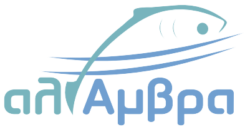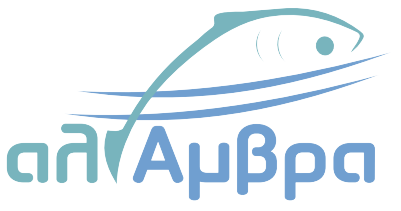fishermen training and awareness seminars
Training Seminars for Fishermen Four training seminars for fishermen were conducted as part of the aliAmvra Project. The seminars addressed the fishermen of the Ambracian Gulf during a period, which is characterized by a reduction in fish stocks, the presence of invasive species, and the degradation of the environment, particularly aquatic ecosystems. The seminars aimed to inform the fishermen about the current state and future developments, help them understand existing risks, and explore possibilities to decelerate the decline course of fishing grounds. Additionally, the seminars aimed to make the significant advantages of the Gulf understandable to the fishermen of the Ambracian Gulf, such as its uniqueness and specific characteristics, making their fishing products competitive and, in many cases, unique. Beyond that, the seminars sought to enhance the moral status of fishermen in the social context as a symbol of history and social relationships. The seminars lasted 30 hours and took place in the region of Arta (Epirus, Greece). In distinct sessions, specialized speakers delivered presentations, informing the members of the fishing cooperatives in Arta and local professional fishermen on topics such as environmental management, sustainable fishing practices, recycling and circular economy, biodiversity, and the unique ecosystem of the Ambracian Gulf. The content also covered the historical ‘course’ of the Gulf, and the specific genetic, biochemical, and qualitative characteristics of Ambracian Guld fish, influenced by the presence of specific nutrients in its lagoon (phytoplankton and zooplankton). Furthermore, the seminars addressed the risks to the Gulf’s existence, including pollution issues, the presence of heavy metals and invasive species. First Training Seminar for Fishermen The first fishermen training seminar comprised 5 meetings with the fishermen and the members of the fishing cooperatives from the Ambracian Gulf area and the broader area of Arta. These meetings were held in the conference room of the former City Hall of the Amvrakikos Municipality. Second Training Seminar for Fishermen The second fishermen training seminar comprised 5 meetings with fishermen and members of fishing cooperatives from the Ambracian Gulf area and the broader region of Arta, specifically from villages with significant fishing traditions (Aneza, Psathotopi, Koronisia, etc.). These meetings were also held in the conference room of the former City Hall of the Amvrakikos Municipality. Third Training Seminar for Fishermen The third fishermen training seminar involved 5 meetings with fishermen and members of fishing cooperatives from the village of Koronisia. These meetings were hosted in the picturesque fishing village of Koronisia. Fourth Training Seminar for Fishermen The fourth fishermen training seminar comprised 5 meetings with the fishermen of the Association of Free Fishermen of the Nikolaos Skoufas Municipality “o Arachthos”, and fishermen from the wider area of the Nikolaos Skoufas Municipality. The initial three meetings were held in the Parapotamio Park of Neochori village, with the last two taking place in Kopraina.
fishermen training and awareness seminars Read More »

